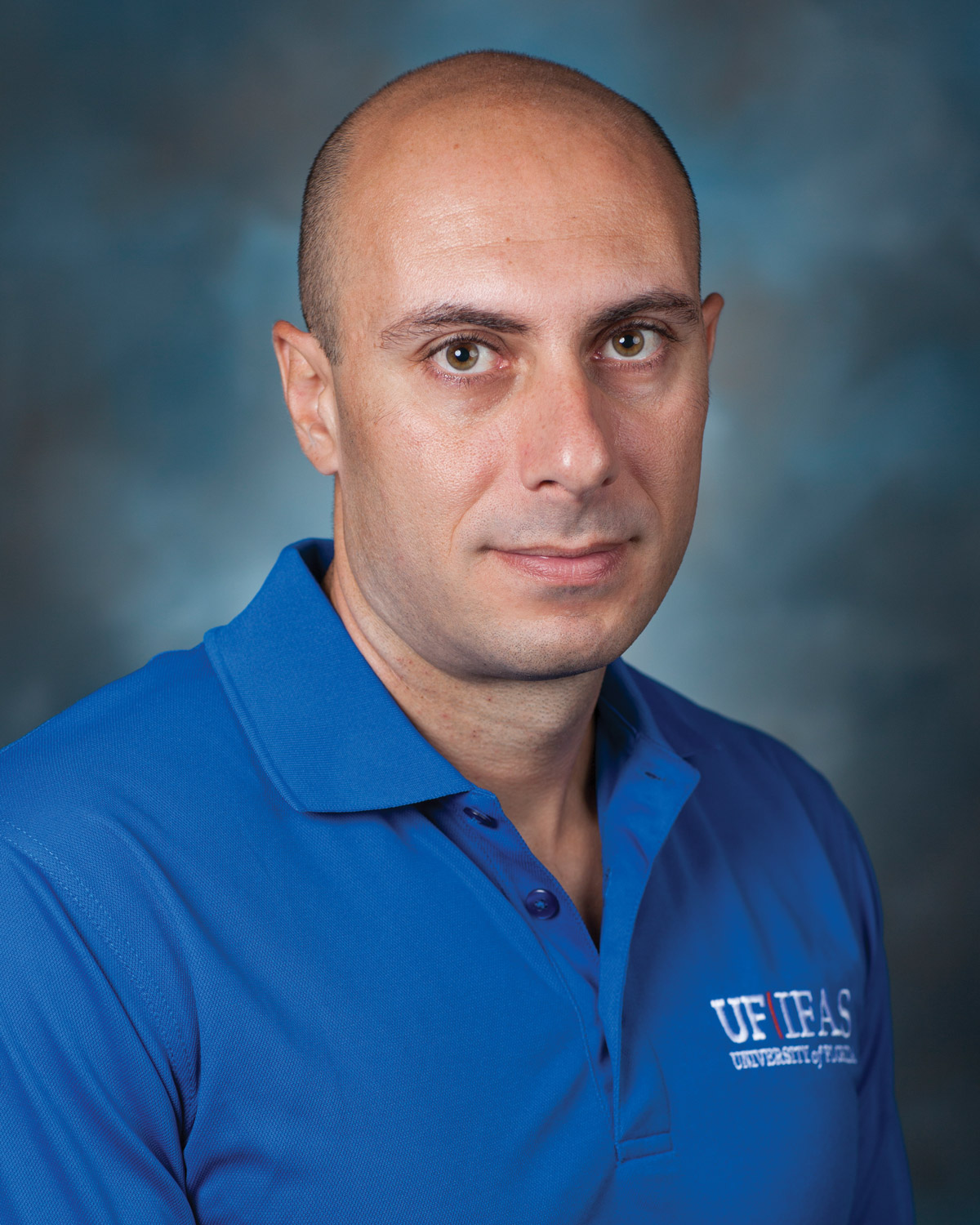Yiannis Ampatzidis, Ph.D.
Associate Professor of Agricultural and Biological Engineering
Institute of Food and Agricultural Sciences
2024 Awardee
In seven years at the University of Florida, Yiannis Ampatzidis has invented Agroview and AgroSense, artificial intelligence technologies that are giving farmers fast, accurate data. The information helps growers control pests and diseases and gives them knowledge on tree inventory, canopy and health.
Ampatzidis, a UF/IFAS associate professor of agricultural and biological engineering and faculty member at the Southwest Florida Research and Education Center, has also invented several other AI-enabled technologies. That includes a smart tree-crop sprayer, technology for precision weed management, an automated insect monitoring and mapping technology as well as an automated, needle-based trunk injection system for citrus trees affected by greening.
For pest and disease detection, traditional technologies rely on manual sampling, which is time consuming and labor intensive. To accelerate that process and make it more accurate, Agroview processes, analyzes and visualizes data collected from remote sensing systems such as drones, airplanes and satellites. Agroview was named the UF Invention of the Year in 2020 by UF Innovate.
“His exceptionally productive efforts in precision agriculture and artificial intelligence were already in place when UF made its landmark commitment to the discipline,” says Center Director Mike Burton. “Since his arrival at UF/IFAS, Dr. Ampatzidis has built a remarkable compilation of achievements, on behalf of Floridians, from a startlingly modest pool of initial resources.”
Additionally, Ampatzidis’ entrepreneurial spirit can be seen in his spinoff company, Agricultural Intelligence Inc., as well as devices that enhance grower profitability and reduce pesticide use. Both serve Florida and the state’s agriculture industry well, Burton says.
Ampatzidis has authored or co-authored 81 journal articles and earned $4.2 million in grants for research and extension programs since 2017.
“Grant funding has played a pivotal role in advancing my research and extension programs, particularly in precision agriculture applications utilizing AI,” Ampatzidis says. “This funding has facilitated the development of cutting-edge AI technologies and data analytics tools, allowing us to address complex issues affecting the production of high-value crops including labor shortages, increased costs and climate change.”
Moreover, it has enabled him to collaborate with experts across many disciplines.
“Through our research and extension efforts, we aim to harness the power of AI
to revolutionize farming practices, optimize resource usage and improve crop quality and yield, ultimately contributing to sustainable agriculture and food security,” Ampatzidis says.


